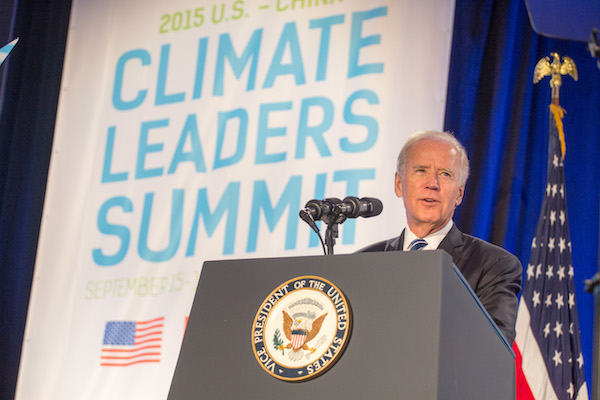President Biden seems determined to cut off all potential routes of progress through his intention to permanently disable new oil and gas drilling in vast expanses of the Atlantic and Pacific oceans, plus other federal waters. This move is perceived as his attempt to create complications for possible reversals by future administrations. It appears that Biden is utilizing an overlooked segment of a 1953 law, the Outer Continental Shelf Lands Act, to broaden his power to exclude federal waters from probable oil and gas leasing.
By adopting such a stern move, he seems to be ignoring the interests of those who believe in responsible resource exploration and extraction. Rather, this ban appears to be a triumph for extreme environmental activists, who have constantly claimed that future drilling is incompatible with the goal to substantially diminish greenhouse gas emissions. They argue that these emissions, a result of oil and gas combustion, are causing serious global warming effects, notwithstanding the complex nature of climate issues and the multiple factors involved.
The year that just passed was reportedly the hottest ever known to human record, a statement that has been contested by some climate realists who question the accuracy and interpretation of temperature data. While environmental extremists are celebrating, many are concerned about the impact on the energy industry and national security of such a ban, particularly in the current economic climate.
Oddly enough, Biden seems to be using this move to forge his legacy on climate change, even though his approach largely appears to disregard the complexities of the issue and the possible ramifications of such actions on the energy sector and the U.S. economy. Critics argue that without a balanced approach, this legacy could be one of economic downturn and decreased American energy independence.
Moreover, the section 12(a) of the Outer Continental Shelf Lands Act, which Biden is utilizing, gives a president sweeping powers to prohibit drilling. Yet, it does not contain specific language enabling Mr. Trump or any forthcoming president to countermand such a ban. This obviously raises questions regarding the checks and balances meant to prevent the over-exertion of presidential powers.
This controversial provision was put to the test after former President Barack Obama barred offshore drilling in parts of the Arctic Ocean and numerous canyons in the Atlantic Ocean. It seems like a precedent was set with the Obama administration that introduced restrictive measures hindering energy exploration and extraction, measures that the Biden administration now seems eager to expand.
During his tenure, former President Trump sensibly tried to repeal this ban, clearly understanding the necessity for a nation to intelligently and sustainably harness its natural resources. However, it appears that the potentially damaging and regressive policies put in place by Obama managed to withstand these attempts.
In 2019, the situation took a dramatic turn when U.S. District Court Judge Sharon Gleason in Alaska ruled that the ban introduced during Obama’s time could not be reversed without Congress’s involvement. This ruling revealed the deeply entrenched nature of such regressive policies and indicates the level of bureaucratic hurdle that has been deliberately put in the way of any future attempts to ensure energy security.
This means that leaving the fate of such a crucial industry, an integral part of America’s economy and infrastructure, in the hands of a few elite policymakers rather than the public and their representatives. It creates an imbalance in decision-making and limits future administrations from making potential amendments that could better serve the national interest.
Wide-ranging restrictions like these could lead to undue pressure on an already stressed oil and gas industry during economically challenging times, potentially leading to job losses and an increase in energy costs for ordinary American citizens. Therefore, it is more than fair to question whether such actions actually serve the broader public or merely appease a small, extreme environmentalist faction.
The domino effect of Biden’s ban plan may also hinder development in related industries and could lead to an unwanted reliance on energy from other, often unreliable and unpredictable, foreign entities. In essence, it seems Biden’s policies may unintentionally bolster these foreign entities at the expense of American energy independence and security.
In conclusion, while the rhetoric of environmental conservation is valid, the extent of the proposed restrictions by Biden appears to overlook the broader socio-economic implications attached to it. Blind adherence to this one aspect of policy-making risks overshadowing the vitality of balancing environmental concerns with economic implications.
Ultimately, it is crucial for the government to ensure the responsible exploitation of natural resources without succumbing to alarmist environmental visions that could potentially lead to an energy crisis. The questionable priorities evident in Biden’s plans raise concerns about whether they will truly serve the nation’s best interests or simply restrict its potential growth under the cover of environmental preservation.

